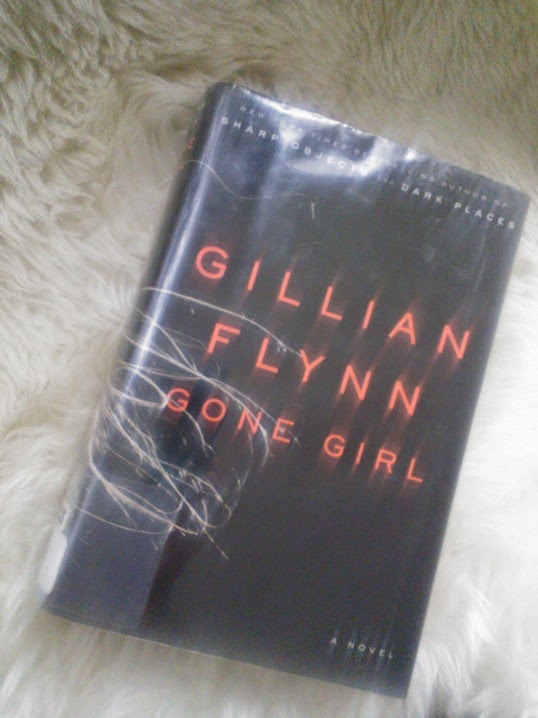When I think of my wife, I always think of her head. The shape of it, to begin with. [...] And what's inside it. I think of that too: her mind. Her brain, all those coils, and her thoughts shuttling through those coils like fast, frantic centipedes. Like a child I picture opening her skull, unspooling her brain and sifting through it, trying to catch and pin down her thoughts. What are you thinking, Amy? The question I've asked most often during our marriage, if not out loud, if not to the person who could answer. I suppose these questions stormcloud over every marriage: What are you thinking? How are you feeling? Who are you? What have we done to each other? What will we do?
The mood set by the opening paragraphs was ominous enough, although these words were curiously vague. After reading the novel I went back to look at the first pages and realized that this was the best way to begin such an insane story of mystery, manipulation, and love gone awry.
Gone Girl is an unfortunate novel to write about: all the best bits would require me to spoil the twists and turns completely, and those were so much fun to discover while reading! So instead, I'll say this: Gone Girl is a dark novel. You might be startled at how violently you want to shake the main characters. It's a story designed to frustrate readers, but in a good way. I swear!
Gone Girl is told from two alternating view points: Nick's story begins on the day Amy disappears; Amy's story unfolds through journal entries, starting seven years earlier when the two met for the first time. Just when you think you have both of them sussed out, the story grabs you by your head, twisting it until your neck cracks. And not just once! It's a nauseating reading experience, and I loved it. Once, I felt smug for having figured out a detail well before I thought anyone should have, but I turned out to be wrong. Pretty humbling, that. Later, turns out I was actually right! Kind of right, anyway. At least in the ballpark.
Gone Girl reminded me of Jodi Picoult's The Pact: A Love Story: both have two narrations within the main story, filling in gaps and misleading the reader who does not know whom to believe anymore. Both novels are critical of modern humans learning what real love is supposed to be like from romantic movies or stories, to the detriment of their own relationships. Gone Girl goes further to examine the terrors when people cannot uphold the Fun Pixie Girl and Fun Romantic Hero Man roles they have adopted to attract one another.
I'm 27th in line for the hold of Flynn's other books at the library. It was nearly impossible not to just push a couple of buttons on my Kindle to buy and download them as soon as I put Gone Girl down at bed time so that I could continue to dwell in Flynn's wonderfully dark worlds. I'm not quite there yet with immediate book gratification, so I wait.
And on…
6 years ago







